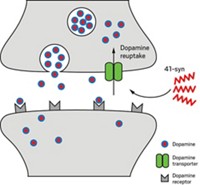Advertisement
Grab your lab coat. Let's get started
Welcome!
Welcome!
Create an account below to get 6 C&EN articles per month, receive newsletters and more - all free.
It seems this is your first time logging in online. Please enter the following information to continue.
As an ACS member you automatically get access to this site. All we need is few more details to create your reading experience.
Not you? Sign in with a different account.
Not you? Sign in with a different account.
ERROR 1
ERROR 1
ERROR 2
ERROR 2
ERROR 2
ERROR 2
ERROR 2
Password and Confirm password must match.
If you have an ACS member number, please enter it here so we can link this account to your membership. (optional)
ERROR 2
ACS values your privacy. By submitting your information, you are gaining access to C&EN and subscribing to our weekly newsletter. We use the information you provide to make your reading experience better, and we will never sell your data to third party members.
Biological Chemistry
Cancer: A Protein Aggregation Disease
Misfolded and aggregated proteins–longtime hallmarks of brain disorders–also appear to play a role in cancer
by Sarah Everts
March 28, 2011
| A version of this story appeared in
Volume 89, Issue 13
Aggregated proteins, the longtime hallmarks of neurodegenerative disorders such as Alzheimer’s disease, also play a role in cancer, new research suggests. Preventing aggregation of proteins, such as the tumor suppressor protein p53, could thus become a strategy for anticancer drug development. A team led by Joost Schymkowitz and Frederic Rousseau at Catholic University, in Leuven, Belgium, took a look at p53, which binds DNA to help regulate cell cycles. It’s also mutated in 50% of all cancers, and about one-third of p53 mutations cause the protein to misfold. The Leuven team found that these misfolding mutations lead to aggregation of both diseased and wild-type p53, as well as aggregation of two other regulatory proteins, p63 and p73 (Nat. Chem. Biol., DOI: 10.1038/nchembio.546). “Overall, our study reveals a novel disease mechanism for mutant p53,” the researchers note, “and suggests that, at least in some respects, cancer could be considered an aggregation-associated disease.” The notable difference between aggregation of proteins in cancer cells and those in neurodegeneration is that aggregation in cancer leads to uncontrolled cell growth, whereas in neurodegeneration it leads to cell death.



Join the conversation
Contact the reporter
Submit a Letter to the Editor for publication
Engage with us on Twitter